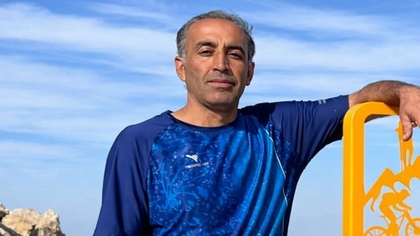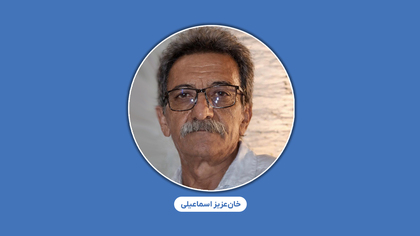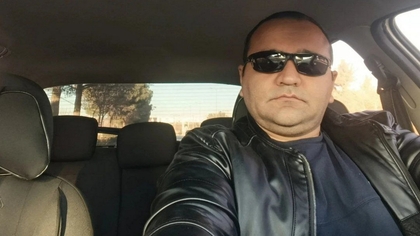Piranshahr/ The murder of a 21-year-old woman who was a victim of child marriage by her father

At 2:20 a.m. on Sunday, October 14, 2023, a 21-year-old woman named "Troskeh Abdollahzadeh", daughter of Karim (known as Hajji), from the village of "Kaseh-Karan" in Piranshahr and resident of this city, who was a victim of child marriage, was killed by her father as a result of severe beating and hitting her neck for "having a phone call with someone else".
According to a source; This 21-year-old woman was driven out of her husband's house about two months ago due to "having a phone call with someone else" and took refuge in the house of his uncle. She then returned to her husband's house and during the last three nights she was at her parents' house; As a result of some events that took place, she got killed by her father.
The source informed Kurdpa about the way the events happened for this woman who was a victim of child marriage and how she was killed by her father:
In the last hours of Troskeh's life, her father calls the person who had a phone relationship with Troskeh and says: you have to be responsible and marry my daughter. When he faced his opposition, the call, ended with a severe argument. Then, the father, the uncle (who was Troskeh's father-in-law), the husband, and some of his brothers take her to a room with a beating and talk about what to do. When Troskeh heard their words, she threw herself out of the window of the room that was on the second floor. At this time, one of her aunts came to her aid and Troskeh was transferred to the house of another uncle. When Troskeh's father and uncle found out that she was gone, they went after her. The uncle who had Troskeh in his house stopped the father and other uncle (her father-in-law) and said, you should not do anything to her. But they did not listen to him and when they entered the house they beat Troskeh as much. Then her father strangles her with a scarf. At this moment, one of Troskeh's brothers-in-law tears the scarf and saves her, but her father kicks her in the head, which causes a severe blow to Troskeh's neck and killed her.
After Troskeh's murder, her body was transferred to Piranshahr Intelligence Police and her father and uncle (father-in-law) surrendered themselves to the police, but only her father was arrested. At the time of publication of this report, the body of this 21-year-old woman is in the hospital and is scheduled to be transferred to Urmia Forensic Medicine for autopsy.
Troskeh was forced to marry one of her cousins named "Rahman" at the age of 13. She was a child bride who became pregnant at the beginning of marriage. Troskeh had an 8-year-old daughter and a 5-year-old son.
Kurdpa strongly condemns femicide and emphasizes that the Islamic Republic is a sex/gender apartheid government and women are systematically oppressed, suppressed, killed by the government, and discriminated against by the laws and structure of the government.
and on the other hand, The government has benefited politically-socially from femicide and has left the hands of the perpetrators open to killing women. Society and civil institutions must seriously enter into this issue and raise awareness about femicide for society. This social responsibility is the most effective and perhaps the only solution that currently exists to deal with violence against women in society and perhaps silence in this regard will take more victims. Victims who themselves have been victims of child marriage, forced marriage, dropping out of school, pregnancy at young ages, and various types of social and human deprivation and restrictions before. According to Awin Mostafazadeh, head of the statistics center and spokesman for Kurdpa;
What needs to be considered about femicide in Iranian Kurdistan, contrary to the government's discourse, is that femicide is not the result of a single factor called "honor" or "culture" as the issue, as the government says.
Ironically, the government took advantage of it in a socio-political way to abdicate its responsibility in connection with the discriminatory and violent laws and regulations against women, especially the immunity it adopts for the perpetrators of murder in the laws. On the other hand, it shows that Kurds inherently have a culture of femicide, while culture is not a static issue and continues its process in relation to the socio-political-economic conditions of the society.
Also in recent years, social phenomena such as addiction, poverty, unemployment, etc. have been among the important factors in domestic violence, femicide, and increasing violence in society in general. On the other hand, the phenomena of femicide and suicide among women are not only related to passive victims, but many cases have faced violence as a result of demanding their rights. The murder of Fatemeh, 17 years old, and Hayden, 18 years old, are among the two recent cases that have occurred due to their protest against patriarchal laws and pressure for their rights and freedoms.
However, referring to these factors does not mean purifying the perpetrators of women's murder and violence that exists against women in society, but rather a reference to the intermingling of discrimination and violence against women in society that government laws and regulations have internalized and institutionalized them. And of course, traditions and anti-women laws must be pushed back and their perpetrators should not have legal and social immunity.



